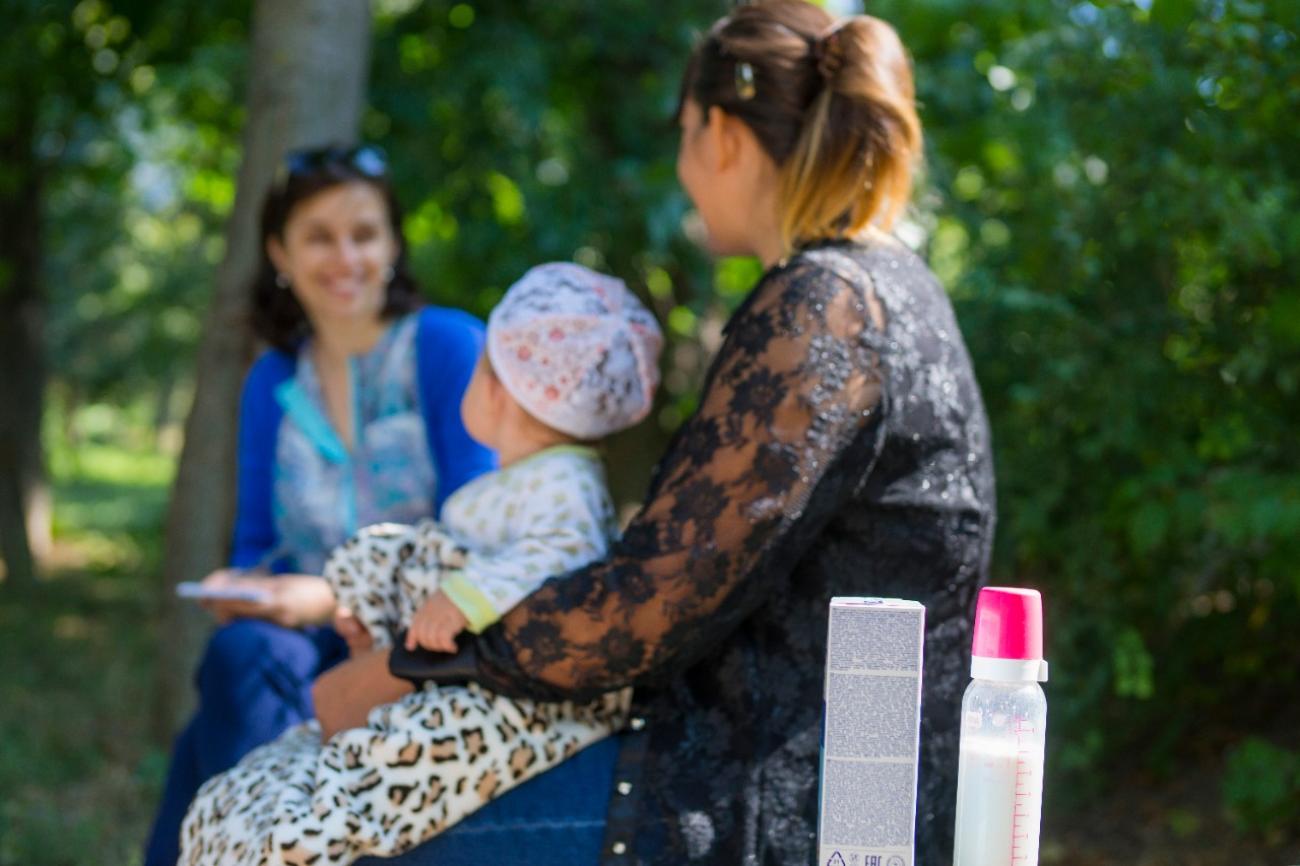A Pill for Life

The alarm ‘wakes up’ Elena six times a day.
It’s been happening for four years since she found out she was seropositive. “I am horrified to forget to take the antiretroviral medicine, so I set the hours when I have to drink my pill on two alarm clocks and on my phone. For a long time, and still, I cannot believe my infection was transmitted from the man I trusted most”, said Elena, a 32-year old woman from Chisinau.
The news of being HIV-positive came shortly after she found out she was pregnant. Both pieces of news came unexpectedly like snow in summer. “At that time, it was impossible to save neither the baby, nor the relationship with the baby’s father. The most horrifying months of my life followed: alone, taunted by my mother and relatives, powerless and full of anger for all that happened to me…”, told the woman.
The only thing she could hang onto was the doctor from the Chisinau Dermatology and Communicable Diseases Hospital, who convinced her that she could have a normal life and even reach old age, if she followed strictly the antiretroviral therapy (ARV). It meant to take the pills at the same hour, every day, for the rest of her life. It was difficult to get used to this schedule. Then she got sick of it and gave up. “It was a huge mistake. If one stops the treatment, there is a risk that the pills might not be efficient when the treatment is resumed. It was necessary to change the treatment scheme, and I felt much worse. I got very scared and I promised myself to never quit again” said Elena.
At the end of 2015, when Moldova faced a serious crisis of vital medicines, Elena panicked again. ”I got very scared that I would not be able to receive my free treatment, and stopping the treatment was equal to death for me”, said Elena. The absence of ARV medicine is like a death sentence for about 4,500 persons in Moldova, who like Elena, receive the ARV therapy to live.
The insecure situation on pharmaceutical market has determined the Ministry of Health, Labor and Social Protection to request the United Nations Development Programme’s (UNDP) assistance for the procurement of vital medicines. Hence, in 2017 the UNDP procured medicines and other medical products for the treatment and diagnosis of diseases included in nine national and special health programmes, in accordance with its corporate standards.
The efforts have resulted, on one hand, in uninterrupted provision of patients with quality medicines, and on the other hand, allowed for substantial savings in the state budget. For instance, the HIV/AIDS Prevention and Treatment Programme had saved about 300,000 USD or 37% of the allocated budget. This increased the quantity of procured medicines and thus, more lives can be saved.
Elena overcame the crisis, too. “I have been reborn and I have a purpose in life for some months now and all thanks to our beautiful girl”, said the woman hugging closer her daughter. “I would like to thank my current husband who decided to stay with me, when he found out about my status, and even insisted on having a child. We met accidently, and I never thought we would be together. He has been through a lot of difficulties and that is why he appreciates the truly important things in life. I think this was what connected us”, said the woman. Elena carried her pregnancy in hospitals while being constantly scared. She followed strictly the indications of the doctors, and in the end, she gave birth to a perfectly healthy child.
Because the HIV virus can be transmitted through breast milk, Elena had to feed her daughter with infant formula. It is a challenge for a family with modest income, as Elena’s, where the only seasonal breadwinner is the husband, who works in constructions. “Luckily the state pays for infant formula, otherwise, I do not think we could have managed. It is a huge help giving the fact that the price for an infant formula may account to 150 MDL on average and it only lasts for 10 days. And besides the infant formula, the child needs so much more”, said Elena.
Through the same medicine acquisition project, the UNDP delivered in time the entire quantity of infant formula foreseen by the national health programme for this year. The infant formula as all the medicinal products procured by the UNDP, i.e. 127 international non-proprietary names, as well as 217 types of medicinal products, meet the highest quality standards and requirements of the World Health Organization.
“We were very lucky the baby accepted the infant formula: she did not have any allergies or cramps. Because of it, she grows very fast”, said the woman. An evidence is the energetic, chubby child, who smiles and babbles sweetly in her mother’s arms. “A parent does not need anything else but see her child growing healthy and happy. Now, our girl is the most important pill for me, who keeps me alive and gives me every day energy and the joy to live”.


